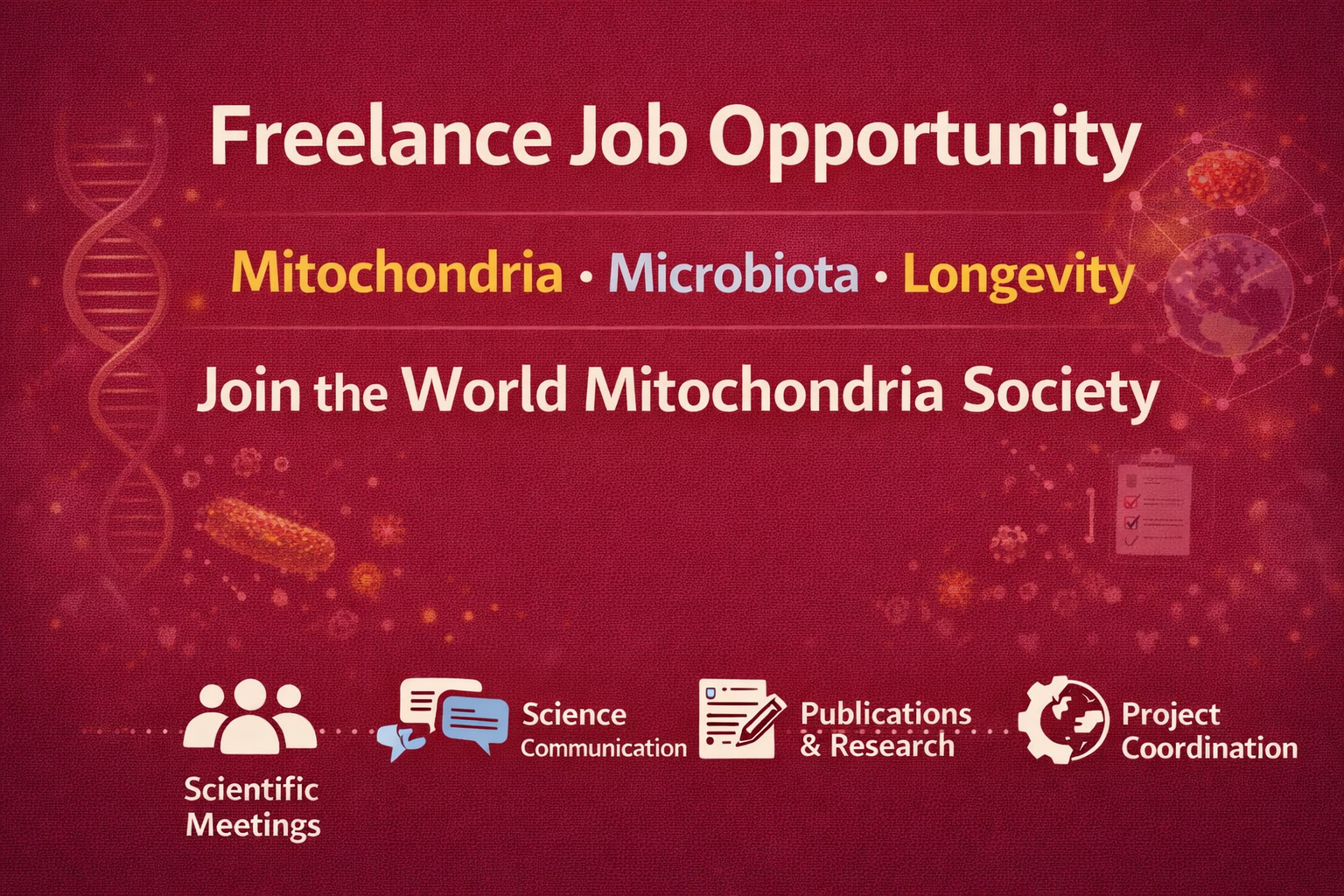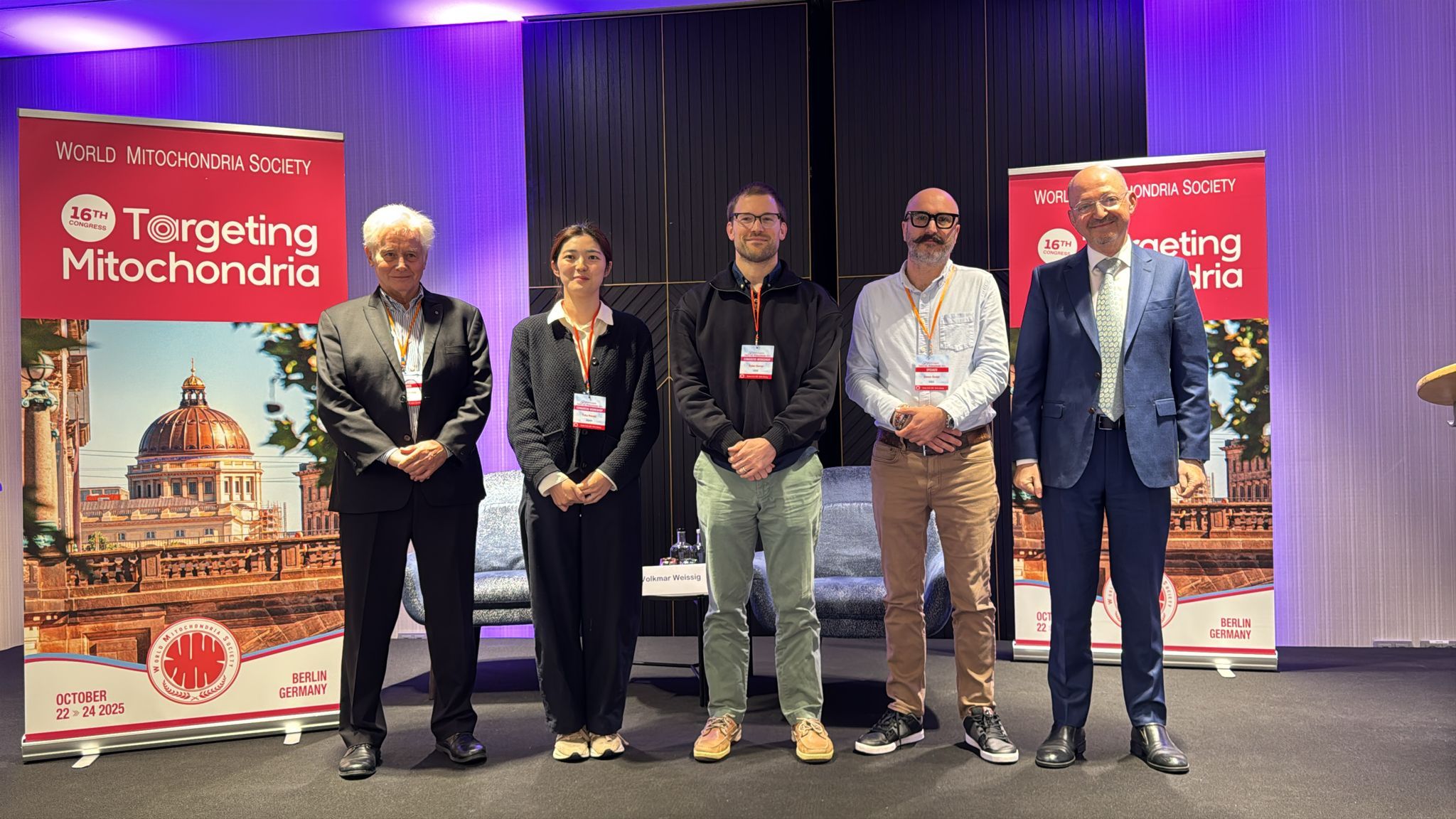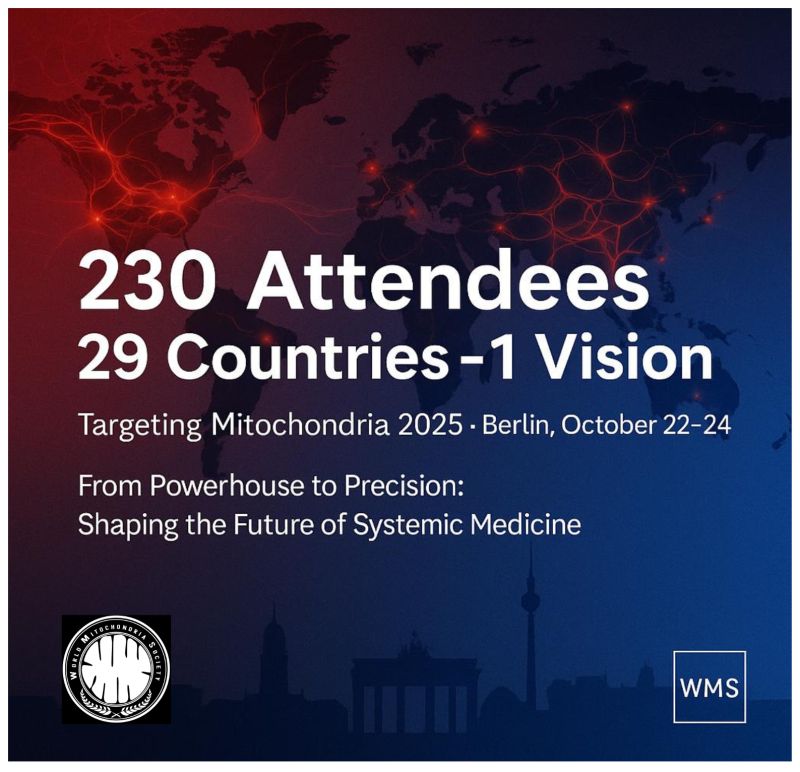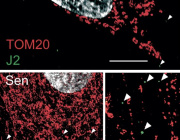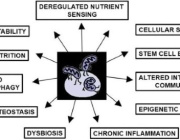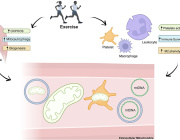Targeting mitochondrial metabolism, geroprotection to treating Alzheimer’s disease
 Dr. Antonio Currais from The Salk Institute for Biological Studies, La Jolla, USA will give a presentation about "Targeting mitochondrial metabolism, geroprotection to treating Alzheimer’s disease" during the 9th World Congress on Targeting Mitochondria, which will be held at Steigenberger Hotel, Berlin on October 23-25, 2018.
Dr. Antonio Currais from The Salk Institute for Biological Studies, La Jolla, USA will give a presentation about "Targeting mitochondrial metabolism, geroprotection to treating Alzheimer’s disease" during the 9th World Congress on Targeting Mitochondria, which will be held at Steigenberger Hotel, Berlin on October 23-25, 2018.
According to Dr Currais: "In light of the consistent failures in clinical trials for Alzheimer's disease (AD), there is an urgent need to understand the primary mechanisms driving the disease and to identify new drug targets based upon this information. Age is by far the greatest risk factor for AD and related dementias. Using a set of compounds that we developed to purposely target features of the aging brain, we have identified a unique anti-aging and neuroprotective molecular pathway that is associated with the enhancement of mitochondrial metabolism and stability over time. The implications of our findings to the fields of aging, AD and mitochondria will be presented and discussed."
For more information, please visit www.targeting-mitochondria.com
Cellomics of mitochondrial morphofunction: presentation of the recent advances

During the 9th World Congress on Targeting Mitochondria 2018 which will be held in Berlin next October 23-25, Prof. Werner Koopman from RadboudUMC University, Nijmegen, The Netherlands will present a strategic talk about Cellomics of mitochondrial morphofunction.
According to Prof Koopman: "Mutations in NADH:ubiquinone oxidoreductase (complex I or CI), the first complex of the mitochondrial oxidative phosphorylation (OXPHOS) system, induce Leigh syndrome (LS) leading to early death in children. The LS pathomechanism is still poorly understood and effective treatment options are still lacking. Here we applied high content microscopy analysis (cellomics) to investigate the hypothesis that LS fibroblasts display “reductive stress” and that this stress impacts on cell viability and bioenergetics."
If you would like to know more about Targeting Mitochondria Congress: www.targeting-mitochondria.com
Targeting Mitochondria Congress 2018 will be held in Berlin in October 23-25, 2018

The Scientific Committee of the World Mitochondria Society is under preparation of the 9th World Congress on Targeting Mitochondria which will be held in Berlin on October 23-25, 2018.
All the information will be added on this website soon.
If you are interested to receive all the information about the World Mitochondria Society and Targeting Mitochondria 2018, please subscribe to WMS newsletter by clicking here.
Source for picture: Flixbus
Concluding remarks of Targeting Mitochondria 2017 by Prof. Volkmar Weissig

The 8th World Congress on Targeting Mitochondria was again this year organized in Berlin on October 23-24, 2017. The 8th edition was an excellent platform, this year for 273 participants from 44 countries, to share data, ideas, critical comments and opinions alike.
Who attended Targeting Mitochondria 2017?
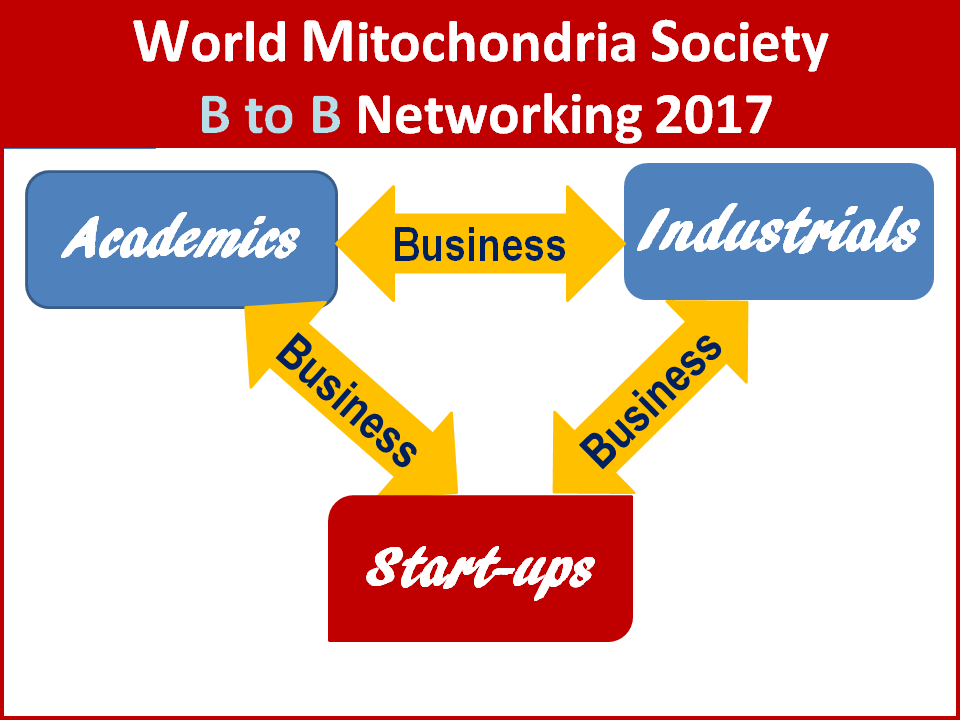
The Targeting Mitochondria Network Session was a place created for every actors in Targeting Mitochondria chain. Industrials and academics from all countries and specialties came to listen and learn more about Mitochondria, Oxidative Stress and all related subjects. It was a perfect moment to meet people who brought you new opportunities, or helped you to solve a problem.
Among the participants of Targeting Mitochondria 2017:
Novintum Bioscience Limited, Selcia Ltd, OP2 Drugs, IHU Liryc, Mikrogen Genetic Diagnosis Center, Thermo Fisher Scientific/Molecular Probes, Cerba Healthcare, Health Optimization Medicine and Practice, mse Pharmazeutika GmbH, Colorado Center for Reproductive Medicine, Vifor Pharma, Faculty of Bioengineering and Bioinformatics, Moscow State University, Nutricia Research, GlaxoSmithKline, Fresenius Kabi Deutschland GmbH, Mission Therapeutics, Helixor Heilmittel GmbH, Georgetown University School of Medicine, IRCCS - Istituto di Ricerche Farmacologiche Mario Negri, Trakya University, University of Pécs, INBIOMED, Facultad de Medicina, Universidad de Buenos Aires, Medical University of Lodz, University of Bordeaux, The Institute of Holistic Nutrition, Yuksek ihtisas university, Philipps University Marburg, Goethe University, Sheba Medical Center, L. Boltzmann Institute for Exp Clin Traumatology, Biomedical Research Center, Biology Centre, University Hospital Basel, INRA, Universidade Federal de Sao Paulo, INRA, The University of Hong Kong, Université de Strasbourg, Consiglio Nazionale delle Ricerche - ISOF, German Institute of Human Nutrition (DIfE) Potsdam-Rehbruecke, Charité Berlin, HNO-Klinik, Ludwig Boltzmann Institute for Experimental and Clinical Traumatology, Vivacite Cener for scientific wellness, University of Insubria, Chubu University, Heilpraktikerin, Julius-Maximilians-Universität Würzburg, SELF, Halic University, Universidade de São Paulo, WWU Münster, University Witten Herdecke, University of Helsinki, University of Namur, UMR 7156 Strasbourg University CNRS, University of Leipzig, Faculty of Medicine, University of Pittsburgh, Universitat de Barcelona, University of Graz, Erasmus Medical Center, Charité Universitätsmedizin Berlin, Federico II University of Naples, Division of Pharmacology, Department of Neuroscience, Institute of Biotechnology CAS, Takayama, The Chinese University of Hong Kong, Minneapolis VA Health Care System & University of Minnesota, Institute Theoretical and Experimantal Biophysics, Viberpoint International, Institut Pasteur & CNRS, Centro de Neurociências e Biologia Celular, University of Coimbra, Portugal, Gifu University, CEA, Università Politecnica delle Marche, Dr. Margarete Fischer-Bosch-Institut für Klinische Pharmakologie, Privatpraxis, University of Ulm, Institute of Biomedical Technologies - National Reasearch Council / Doctorate School of Molecular and Translational Medicine - University of Milan, Certification coach export, Loma Linda University, Dept. Molecular Medicine - University of Pavia, université de Bordeaux, CNIC, Hôpitaux de Strasbourg, Pusan National University, Medical Centre, University of Lausanne, Medical Genetics, Department of Biomedical Sciences and Human Oncology (DIMO), University of Bari Aldo Moro, University of Bergen, EURAC Research Bolzano, Institute of Oncology Research (IOR), Centro de investigación y de Estudios Avanzados del IPN, Katholieke Universiteit Leuven, Charité/ Universitätsmedizin Berlin, CCR, Institute for Pharmacology, The Catholic University of Korea, Albstadt-Sigmaringen University of Applied Sciences, Baskent University, University of Veterinary Medicine Vienna, Osaka University, Institut de recherches cliniques de Montréal (IRCM), UTMB, Deutsches Zentrum für Neurodegenerative Erkrankungen e. V. (DZNE), Children’s Hospital of Nanjing Medical University, Copenhagen University, Lithuanian University of Health Sciences, University of Pennsylvania, Jagiellonian University Medical College, University of Bari Aldo Moro, Institute of Theoretical and Experimental Biophysics, Tarbiat Modares University, Chungbuk National University, iCeMS, Kyoto University, University of Tasmania, Vrije Universiteit Brussel, Institute of Physiology, The Czech Academy of Sciences, Instituto de Investigación Hospital 12 de Octubre (i+12), University of Fribourg, Masaryk Memorial Cancer Institute, Department of Pediatrics and Adolescent medicine / Charles University, First Faculty od Medicine, Charles University in Prague, National University of Singapore, Stockholm University - Department of Neurochemistry, U of Copenhagen, Denmark, University Hospital Bern, German Institute of Human Nutrition, University of Alberta, Canada, UMONS, University of Oslo, Institute of Physiology CAS, Institute of Physiology, Academy of Sciences, Department of Mitochodnrial Physiology, Prague, Aljaibaji hospital, National Taiwan University, Johns Hopkins University School of Medicine, Universiteit Antwerpen, Antwerp University, CNRS-IBMP, university of manchester, Wayne State University, Hackensack University Medical Center, Namik Kemal University, Institute for Biomedicine, Eurac Research, Justus-Liebig University Giessen, Hospital Universitario A Coruna, University of Geneva, Lund University, Fundacion Profesor Novoa Santos, Gemeinschaftspraxis Dr. Schärfe Visselhövede, California University of Science and Medicine, Medical University of Łódź, Aix-Marseille University, Chungnam National University College of Medicine, Stockholm University, Karolinska Institutet, Victoria University/ISEAL, IISER Pune, Philipps- University Marburg, Internistische Praxis Dr. Hendricks, Cellgym Technologies, Bogomoletz Institute of Physiology, Uniwersytet Warszawski, University of Warsaw, Midwestern University, Institute of Bioorganic Chemistry Polish Academy of Sciences, The Institute of Bioorganic Chemistry Polish Academy of Sciences (IBCH PAS), Cardiff University, IMDiK PAN, IMDIK, PAN, Institute of Biomedical Technologies - CNR, Christian Albrechts University, University College London, Laboratorio di Biochimica F.Pacini, Universität Marburg, Safra Childrens Hospital, Health Optimization Medicine and Practice Association, Julius-Maximilians Universität Würzburg, University of Reading, Loma Linda University School of Medicine, Osaka University, University of Copenhagen, University of Minnesota Medical School...
To access the final agenda of Targeting Mitochondria 2017, please follow this link.
How to evaluate mitochondrial function/dysfunction: from the bench to the bedside
 Dr. Egbert Mik from the Department of Anesthesiology, Erasmus MC, University Medical Center Rotterdam, The Netherlands will give the introductory talk of the session "How to Evaluate Mitochondrial Function/Dysfunction?" during the 8th World Congress on Targeting Mitochondria which will be held at Steigenberger Hotel, Berlin on October 23-24, 2017.
Dr. Egbert Mik from the Department of Anesthesiology, Erasmus MC, University Medical Center Rotterdam, The Netherlands will give the introductory talk of the session "How to Evaluate Mitochondrial Function/Dysfunction?" during the 8th World Congress on Targeting Mitochondria which will be held at Steigenberger Hotel, Berlin on October 23-24, 2017.
His research focuses on tissue oxygenation, oxygen-dependent metabolic reprogramming and mitochondrial dysfunction in critical illness. Dr. Mik will talk about the necessity for an integrated and translational approach in mitochondrial research. The latest results regarding bedside measurements of mitochondrial oxygen tension and oxygen consumption in patients using the COMET monitor (Cellular Oxygen METabolism, measured by delayed fluorescence of protoporphyrin IX) will be presented.
For more information, please visit www.targeting-mitochondria.com
The scientific committee published the oral communications presented during Mitochondria Congress 2017
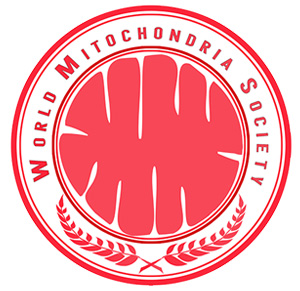 You can find the list of major and short oral communications which will be presented during Targeting Microbiota 2017 by clicking here.
You can find the list of major and short oral communications which will be presented during Targeting Microbiota 2017 by clicking here.
We attract your attention that you have to be registered to the congress to present your talk. If you registered by your talk is not included, please don't hesitate to contact us.
The deadline to submit an abstract for a poster presentation is September 28. The agenda of posters presentations will be published in October.
Presentation of novel mechanisms of mitochondrial damage in oxidative death signaling are key targets for neuroprotective strategies
 Prof. Carsten Culmsee from Marburg Center for Mind, Brain and Behavior, Biochemical-Pharmacological Center Marburg at Institute for Pharmacology and Clinical Pharmacy, Faculty of Pharmacy, University of Marburg, Germany will present the novel mechanisms of mitochondrial damage in oxidative death signaling as key targets for neuroprotective strategies. This presentation will be hedl during the 8th edition of Targeting Mitochondria Congress 2017.
Prof. Carsten Culmsee from Marburg Center for Mind, Brain and Behavior, Biochemical-Pharmacological Center Marburg at Institute for Pharmacology and Clinical Pharmacy, Faculty of Pharmacy, University of Marburg, Germany will present the novel mechanisms of mitochondrial damage in oxidative death signaling as key targets for neuroprotective strategies. This presentation will be hedl during the 8th edition of Targeting Mitochondria Congress 2017.
According to Prof. Culmsee, neurodegenerative diseases share hallmarks of detrimental cellular stress such as disruption of neuronal calcium homeostasis and oxidative stress. In Prof. Culmsee's group, they study novel mechanisms of oxidative stress signaling and associated mitochondrial demise as emerging targets for neuroprotective approaches. [...] These findings, which will be described during the congress, provide novel molecular links between oxidative, pathways of regulated necrosis and mitochondrial demise. Thus, therapeutic approaches targeting mitochondria or upstream mechanisms of regulated necrosis hold promising potential for neuroprotective strategies.
For more information: www.targeting-mitochondria.com
The WMS organizes a B to B meeting during Targeting Mitochondria Congress to present your innovations
You are working in a university or in a innovative start-up? You have an innovation on mitochondria world to present?
As industrial, you are looking for strategic collaboration with universities/start-up?
Don't hesitate to join the Targeting Mitochondria B to B meeting!
The World Mitochondria Society organize a B to B meeting during Targeting Mitochondria Congress on October 23-24, 2017.
Please contact us if you are interested to take part and we will organize a meeting with the appropriate person during Targeting Mitochondria Congress.
To access the list of attendees, please follow this link.
To register to Targeting Mitochondria2017, please follow this link.
To contact us, please send an email to mitochondria(at)targeting-mitochondria.com
Quantifying mitochondrial uptake of nucleobase derivatives through click chemistry
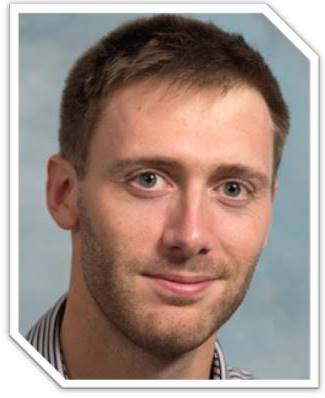 Recently, there has been an increased interest in delivering large molecules to the mitochondrial matrix. However, determining uptake into the mitochondrial matrix is not a straightforward matter. In this talk, Dr. Kurt Hoogewijs from The Wellcome Trust Centre for Mitochondrial Research, Newcastle University, United Kingdom. will describe a novel strategy for the quantification of mitochondrial uptake, based on the quantification of an in situ formed click product.
Recently, there has been an increased interest in delivering large molecules to the mitochondrial matrix. However, determining uptake into the mitochondrial matrix is not a straightforward matter. In this talk, Dr. Kurt Hoogewijs from The Wellcome Trust Centre for Mitochondrial Research, Newcastle University, United Kingdom. will describe a novel strategy for the quantification of mitochondrial uptake, based on the quantification of an in situ formed click product.
This study will be presented during the 8th World Congress on Targeting Mitochondria 2017.
More information: www.targeting-mitochondria.com
Targeting mitochondria by small RNAs: update and prospects

Mitochondria import a variety of macromolecules encoded in nuclear DNA and addressed in the organelle via complex targeting and translocation mechanisms. Among these small non-coding RNA are of particular interest since they are the unique natural pathway to deliver nucleic acids in mitochondria, and can therefore be exploited to address pathogenic mtDNA mutations. So far, neither the extent of its expansion, nor the precise molecular mechnism of this targeting is fully understood. In this talk, Dr. Ivan Tarassov from the University of Strasbourg, France will expose new data on the variety of mitochondrially imported RNA in human cells and discuss new possible strategies exploiting this pathway.
This talk will be presented during the 8th World Congress on Targeting Mitochondria 2017.
More information: www.targeting-mitochondria.com
Studies on mitochondria-targeted plastoquinones and the road from laboratory bench to the market
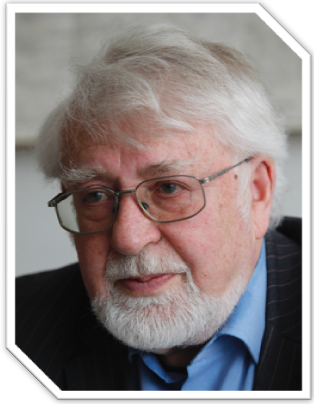 During the 8th World Congress on Targeting Mitochondria 2017, Prof. Vladimir Skulachev from Moscow State University, Moscow, Russia will presentation his studie on mitochondria-targeted plastoquinones and the road from laboratory bench to the market.
During the 8th World Congress on Targeting Mitochondria 2017, Prof. Vladimir Skulachev from Moscow State University, Moscow, Russia will presentation his studie on mitochondria-targeted plastoquinones and the road from laboratory bench to the market.
SkQ1 and other mitochondria-targeted plastoquinone derivatives are promising drug candidates for treatment of pathologies associated with mitochondrial dysfunction. Experiments in animals revealed that SkQ alleviates damage induced by ischemia-reperfusion injury, prevents autoimmune arthritis, suppresses the development of Alzheimer's disease signs, inhibits the development of ophthalmological disorders, including dry eye syndrome (DES), and has anti-inflammatory activity. The first SkQ-based drug (eye drops Visomitin) is already developed and registered in Russia; clinical studies of orally-administered drug is in progress.
During Targeting Mitochondria Congress, Prof. Skulachev will summarize recent experimental data on SkQ effects in animals, results of clinical trials and future perspectives of mitochondria-targeted antioxidants as therapeutic compounds.
More information: www.targeting-mitochondria.com
Development on new technologies for clinical and drug delivery: Probing Mitochondrial Chemical Biology with Organelle-Specific Peptides
 Dr. Shana O'Kelley is a Distinguished Professor of Biochemistry, Pharmaceutical Sciences, Chemistry, and Biomedical Engineering at the University of Toronto, Canada. Dr. Kelley received her Ph.D. from the California Institute of Technology and was a NIH postdoctoral fellow at the Scripps Research Institute. Her research interests are the development of new technologies for clinical diagnostics and drug delivery.
Dr. Shana O'Kelley is a Distinguished Professor of Biochemistry, Pharmaceutical Sciences, Chemistry, and Biomedical Engineering at the University of Toronto, Canada. Dr. Kelley received her Ph.D. from the California Institute of Technology and was a NIH postdoctoral fellow at the Scripps Research Institute. Her research interests are the development of new technologies for clinical diagnostics and drug delivery.
During Targeting Mitochondria World conngress, Dr O'Kelley will present her study on Mitochondria Chemical Biology.
"Mitochondria are very interesting compartments within the eukaryotic cell with a unique evolutionary history. The bacterial origin of mitochondria and retention of a genome differentiate this organelle from others within the cell. Because of the impermeable nature of the mitochondrial membranes, genetic manipulation of the mitochondrial is difficult and as a result little is know about the processes within the organelle that involve nucleic acids. We recently developed a peptide-based delivery vector that can carry reactive cargo into the mitochondria of live mammalian cells. By attaching agents that generate reactive oxygen species or alkylation damage, we can site-specifically probe the cellular response to these insults and deconvolute this response from that resulting from nuclear damage. This approach is revealing new insights into how mitochondrial DNA damage is responded to, and has also indicated that the makeup of mitochondria make them susceptible to other types of bimolecular damage."
More information: www.targeting-mitochondria.com
Strategic presentation on High-content mitochondrial analysis by live-cell microscopy
 Dr. Werner J.H. Koopman from the Deptartement of Biochemistry, Live-cell Bioenergetics group, Radboudumc, Nijmegen, The Netherlands. will give a talk during the Targeting Mitochondria World congress 2017 which will be held at Steigenberger Hotel, Berlin on October 23-24, 2017 and present his research about "High-content mitochondrial analysis by live-cell microscopy"
Dr. Werner J.H. Koopman from the Deptartement of Biochemistry, Live-cell Bioenergetics group, Radboudumc, Nijmegen, The Netherlands. will give a talk during the Targeting Mitochondria World congress 2017 which will be held at Steigenberger Hotel, Berlin on October 23-24, 2017 and present his research about "High-content mitochondrial analysis by live-cell microscopy"
His research aims to unravel the interconnection between cell metabolism and mitochondrial morphofunction in single living cells during healthy and pathological conditions. Here high-content microscopy tools and their application in research and screening strategies will be presented."
For more information: www.targeting-mitochondria.com/
“The Human Longevity Project - Part 1" will be projected during Targeting Mitochondria World Congress
The Human Longevity Project (Part 1) to be screened at the Targeting Mitochondria 2017 Congress is the world premiere of a groundbreaking, new documentary film series that takes an exciting journey around the globe to study the planet’s healthiest centenarians. This upcoming documentary film opens a new investigation into the four Blue Zones around the world, which have been previously identified by Michel Poulain and National Geographic as places containing an inordinate concentration of people with exceptionally long health-spans and incredible levels of vitality late in life. The Human Longevity Project is an 8-part film series that includes interviews from premier scientists, physicians, healers, & health experts around the globe and gathers together real-world footage and interviews with individuals in the Blue Zones. The intent is to reexamine the daily routines and practices ranging the entire lifespan to determine, from a bioenergetic standpoint, precisely how lifestyle factors affect the aging process and how we can adapt these factors to the presentday world. The series is slated to screen globally in 2018.
For more information: www.targeting-mitochondria.com
More Articles...
- Mitochondrial ROS mediated signaling pathways: activation and regulation upon inflammation
- Hydrogen sulfide and mitochondrial function: Presentation of the scientific advances
- How to regulate cardiac excitation-contraction-bioenergetics coupling by mitochondrial fission protein Drp1?
- Creation of a designer molecule to target and silence mitochondrial gene transcription






